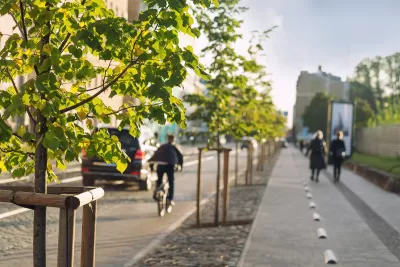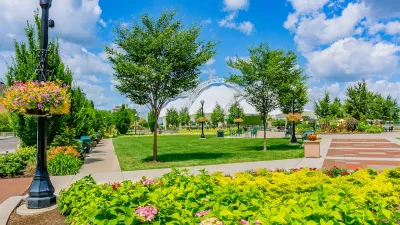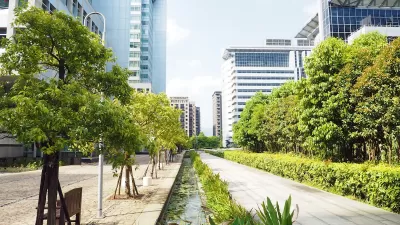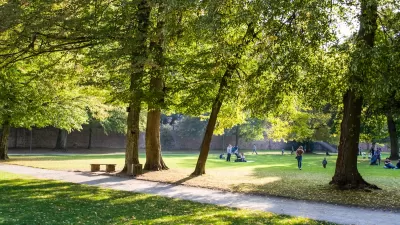Recently, the U.S. Forest Service awarded over $1 billion in competitive grants to expand equitable access to trees and their benefits. Grantees include Los Angeles County and TreePeople, who are working to plant trees where they are most needed.

Made up of trees on public and private lands, the community or urban forest is essential to a healthy, thriving, and resilient community. When spread equitably and supported by other urban greening measures, a well-managed urban forest can deliver a wide range of benefits such as healthier soil, increased biodiversity, new wildlife habitats, shading from heat, and greater community health and well-being.
Through funding from the Inflation Reduction Act, the U.S. Forest Service is making historic investments in boosting the tree canopy in urban, suburban, and rural communities nationwide. The agency has selected 385 grant proposals from entities working to increase equitable access to trees and green spaces and the many benefits they offer.
In this article from the USFS, Andrew Avitt highlights two complementary efforts to expand the community or urban forest in Southern California:
- Early Action Implementation for LA County Community Forest Management Plan:
The project addresses the tree canopy deficit within disadvantaged communities in the unincorporated areas of the county by assessing areas of low canopy coverage, planting diverse tree species, and creating workforce development opportunities for the continued maintenance and monitoring of new and existing trees. - From Redlining to Greenlining: Planting Justice in SoCal: This project involves planting trees on public and private property trees across communities to maximize environmental benefits such as extreme heat mitigation. This project uses tree planting as a vehicle to engage and empower over 25,000 people in ownership of their urban forest through engagement, education, workforce development, and collaboration.
To learn more about these efforts, please read the source article.
FULL STORY: Urban Forestry: From Redlining to Green Lining

Maui's Vacation Rental Debate Turns Ugly
Verbal attacks, misinformation campaigns and fistfights plague a high-stakes debate to convert thousands of vacation rentals into long-term housing.

Planetizen Federal Action Tracker
A weekly monitor of how Trump’s orders and actions are impacting planners and planning in America.

In Urban Planning, AI Prompting Could be the New Design Thinking
Creativity has long been key to great urban design. What if we see AI as our new creative partner?

Massachusetts Budget Helps Close MBTA Budget Gap
The budget signed by Gov. Maura Healey includes $470 million in MBTA funding for the next fiscal year.

Milwaukee Launches Vision Zero Plan
Seven years after the city signed its Complete Streets Policy, the city is doubling down on its efforts to eliminate traffic deaths.

Portland Raises Parking Fees to Pay for Street Maintenance
The city is struggling to bridge a massive budget gap at the Bureau of Transportation, which largely depleted its reserves during the Civd-19 pandemic.
Urban Design for Planners 1: Software Tools
This six-course series explores essential urban design concepts using open source software and equips planners with the tools they need to participate fully in the urban design process.
Planning for Universal Design
Learn the tools for implementing Universal Design in planning regulations.
Gallatin County Department of Planning & Community Development
Heyer Gruel & Associates PA
JM Goldson LLC
City of Camden Redevelopment Agency
City of Astoria
Transportation Research & Education Center (TREC) at Portland State University
Jefferson Parish Government
Camden Redevelopment Agency
City of Claremont





























